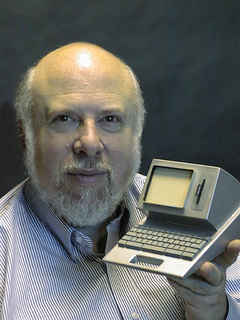A Quote by Eric Hoffer
Our credulity is greatest concerning the things we know least about.
Related Quotes
In childhood our credulity serves us well. It helps us to pack, with extraordinary rapidity, our skulls full of the wisdom of our parents and our ancestors. But if we don't grow out of it in the fullness of time, our ... nature makes us a sitting target for astrologers, mediums, gurus, evangelists, and quacks. We need to replace the automatic credulity of childhood with the constructive skepticism of adult science.
Long experience has taught me this about the status of mankind with regard to matters requiring thought: the less people know and understand about them, the more positively they attempt to argue concerning them, while on the other hand to know and understand a multitude of things renders men cautious in passing judgment upon anything new.
I am confident that we can do better than GUIs because the basic problem with them (and with the Linux and Unix interfaces) is that they ask a human being to do things that we know experimentally humans cannot do well. The question I asked myself is, given everything we know about how the human mind works, could we design a computer and computer software so that we can work with the least confusion and greatest efficiency?
The dark is a quiet place. Reflection and contemplation are the only things to do in it. Well that, and imagine the worst things possible.
I don’t have to reflect or contemplate or any of those things. I know what the worst things possible are. I know about the things that hide in the dark. Insanity is the least of them.
One of the chief obstacles to intelligence is credulity, and credulity could be enormously diminished by instructions as to the prevalent forms of mendacity. Credulity is a greater evil in the present day than it ever was before, because, owing to the growth of education, it is much easier than it used to be to spread misinformation, and, owing to democracy, the spread of misinformation is more important than in former times to the holders of power.



































